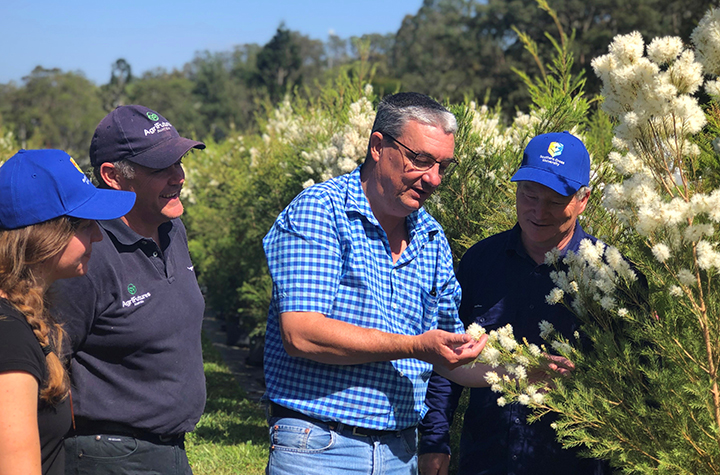
Known as the ‘Tea Tree Breeding Program 2019-2023’, this new four-year project will continue to support the advancement of the breeding population. It brings together the Australian Tea Tree Industry Association (ATTIA), AgriFuturesTM Tea Tree Oil Program and Southern Cross University, and builds on the legacy of desirable traits identified and selected through the previous generations of the Tea Tree Breeding Program.
Continual improvement of the quality and quantity of oil produced in tea tree (Melaleuca alternifolia) plantations will ensure Australia maintains its market leader status in the face of increasing competition from China, South Africa, Zimbabwe and Kenya.
The University’s project leader Dr Merv Shepherd said “I look forward to contributing to the ongoing growth and profitability of this important rural industry.
“Breeding an industrial crop like tea tree requires not only an understanding of the biology and genetics of the plant, but also of the environment in which it is grown, production economics, and the market requirements of the end product.
“Having the tea tree breeding program based at a regional University in the heart of a major growing district will stimulate inter-disciplinary research in genetics, agronomy, product quality and efficacy, which will inform breeding, increase its effectiveness, and provide obvious logistical benefits in the operation of the program.”
Until July 2017, Tea Tree Breeding Program was conducted by the NSW Department of Primary Industries and the CSIRO at the NSW DPI’s Agricultural Institute at Wollongbar. Beginning in 1993, the Program has contributed to major increases in the uniformity and quantity of oil produced from plantations. The Program was originally funded via voluntary industry subscription, bush seed sales, and Commonwealth funds delivered by NSW DPI and CSIRO, and managed by AgriFutures Australia and ATTIA Ltd.









